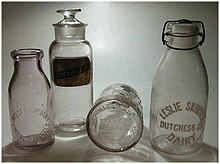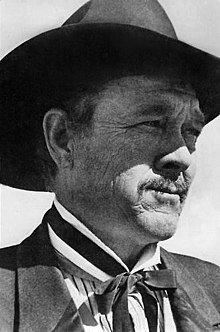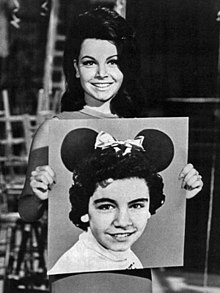April 8 is the 98th day of the year (99th in leap years) in the Gregorian calendar. There are 267 days remaining until the end of the year.
Holidays
Birkat Hachama (observed once every 28 years), last in 2009 and next in 2037 (Hebrew)
Buddha’s Birthday, also known as Hana Matsuri, “Flower Festival” (Japan)
Christian feast day:
- Anne Ayres (Episcopal Church (USA))
- Constantina
- Julie Billiart of Namur
- Perpetuus
- Walter of Pontoise
- William Augustus Muhlenberg (Episcopal Church (USA))
- April 8 (Eastern Orthodox liturgics)
Middle date on which Easter Sunday can fall
DABDay – Draw A Bird Day (International)
Earliest day on which Fast and Prayer Day can fall, while April 14 is the latest; celebrated on the second Friday in April (Liberia)
History
In 217, Roman Emperor Caracalla is assassinated. He is succeeded by his Praetorian Guard prefect, Marcus Opellius Macrinus.
In 632, King Charibert II is assassinated at Blaye (Gironde), along with his infant son Chilperic.
In 876, The Battle of Dayr al-‘Aqul saves Baghdad from the Saffarids.
In 1093, The new Winchester Cathedral is dedicated by Walkelin.

In 1139, Roger II of Sicily is excommunicated.
In 1149, Pope Eugene III takes refuge in the castle of Ptolemy II of Tusculum.
In 1232, Mongol–Jin War: The Mongols begin their siege on Kaifeng, the capital of the Jin dynasty.

In 1271, In Syria, sultan Baibars conquers the Krak des Chevaliers.
In 1665, English colonial patents are granted for the establishment of the Monmouth Tract, for what would eventually become Monmouth County in northeastern New Jersey.
In 1725, John Wise, American minister (b. 1652) dies. He was a Congregationalist reverend and political leader in Massachusetts during the American colonial period. Wise was noted for his political activism, specifically his protests against British taxation, for which he was once jailed. As the pastor of the Chebacco Parish from 1680 to his death in 1725, Wise lived in Ipswich, Massachusetts, often called “the birthplace of American independence.”
Wise was born in Roxbury, Massachusetts, the son of Joseph and Mary (Thompson) Wise. Mary was daughter of Alice Freeman Thompson Parke.
He attended the Roxbury Latin School, in West Roxbury, Massachusetts, graduating in 1669. He then was admitted to Harvard College (now Harvard University). After graduating from Harvard in 1673, he began studying theology, and preached in at Branford, Connecticut and Hatfield, Massachusetts. On August 12, 1683, Wise was ordained as the pastor of the newly organized Chebacco Parish, a new parish formed out of Ipswich.
In 1688, Wise led Ipswich citizens in a protest against royal governor, Edmund Andros and colonial taxation. Andros took a hard-line position to the effect that the colonists had left behind all their rights as Englishmen when they left England. When in 1687 Wise rallied his parishioners to protest and resistant taxes, Andros had him arrested, convicted and fined. As an Andros official explained, “Mr. Wise, you have no more privileges left you then not to be Sold for Slaves.”
Calvin Coolidge referred to him as one of the inspirations for the Declaration of Independence. John Wise Avenue, a section of Route 133 in Massachusetts, is named after him. Liberty ship SS John Wise, launched on June 14, 1942 and scrapped in 1971, was also named after him.
In 1730, Shearith Israel, the first synagogue in New York City, is dedicated.
In 1740, War of Jenkins’ Ear: Three British ships capture the Spanish third-rate Princesa, taken into service as HMS Princess.
In 1784, Daniel Maseres, of England was granted the first patent for a fire escape: a wicker basket on a pulley and a chain designed by a London watchmaker.
In 1808, The Roman Catholic Diocese of Baltimore is promoted to an archdiocese, with the founding of the dioceses of New York, Philadelphia, Boston, and Bardstown (now Louisville) by Pope Pius VII.

In 1820, The Venus de Milo is discovered on the Aegean island of Milos.
In 1832, Black Hawk War: Around three-hundred United States 6th Infantry troops leave St. Louis, Missouri to fight the Sauk Native Americans.
In 1834, Cornelius Lawrence became the first mayor to be elected by popular vote in a city election. The voters of New York City decided to make him mayor of their fair city.
In 1862, the aerosol dispenser was patented by John D. Lynde.
In 1864, American Civil War: Battle of Mansfield: Union forces are thwarted by the Confederate army at Mansfield, Louisiana commanded by Gen Richard Taylor.
In 1866, Italy and Prussia ally against the Austrian Empire.
In 1869, The American Museum of Natural History opens in New York City.

In 1877, Milk was sold in glass bottles for the first time. The first company to do so may have been the New York Dairy Company. Hervey Thatcher, an American inventor from New York, invented a glass milk bottle in 1884, called ‘Thatcher’s Common Sense Milk Jar’, which was sealed with a waxed paper disk.
In 1886, William Ewart Gladstone introduces the first Irish Home Rule Bill into the British House of Commons.

In 1895, In Pollock v. Farmers’ Loan & Trust Co. the Supreme Court of the United States declares un-apportioned income tax to be unconstitutional. In a 5-to-4 decision, the Supreme Court struck down the income tax imposed by the Wilson–Gorman Tariff Act for being an unapportioned direct tax. The decision was superseded in 1913 by the Sixteenth Amendment to the United States Constitution, which allows Congress to levy income taxes without apportioning them among the states.
In 1904, The United Kingdom of Great Britain and Ireland agreement with the French known as the “Entente Cordial” was signed. It settled all global differences between the two, including disputes over Newfoundland, West Africa, Egypt and Morocco.
In 1904, British mystic Aleister Crowley transcribes the first chapter of The Book of the Law.
In 1904, Longacre Square in Midtown Manhattan is renamed Times Square after The New York Times.
In 1906, Auguste Deter, the first person to be diagnosed with Alzheimer’s disease, dies.
In 1908, Harvard University votes to establish the Harvard Business School.
In 1911, Dutch physicist Heike Kamerlingh Onnes discovers superconductivity.
In 1913, The 17th Amendment to the United States Constitution, requiring direct election of Senators, becomes law.
In 1916, In Corona, California, race car driver Bob Burman crashes, killing three, and badly injuring five, spectators.
In 1918, World War I: Actors Douglas Fairbanks and Charlie Chaplin sell war bonds on the streets of New York City’s financial district.
In 1913, the 17th amendment, requiring direct election of senators, was ratified. Evil has falling on us….
In 1917, Austria-Hungary, an ally of Germany, severed diplomatic relations with the United States.
In 1924, Sharia courts are abolished in Turkey, as part of Atatürk’s Reforms.
In 1929, Indian independence movement: At the Delhi Central Assembly, Bhagat Singh and Batukeshwar Dutt throw handouts and bombs to court arrest.
In 1935, the Works Progress Administration was approved by Congress. It is formed when the Emergency Relief Appropriation Act of 1935 becomes law.
In 1942, World War II: Siege of Leningrad: Soviet forces open a much-needed railway link to Leningrad.
In 1942, World War II: The Japanese take Bataan in the Philippines.
In 1943, U.S. President Franklin D. Roosevelt, in an attempt to check inflation, freezes wages and prices, prohibits workers from changing jobs unless the war effort would be aided thereby, and bars rate increases by common carriers and public utilities.
In 1943, Wendell Wilkie’s “One World” was published for the first time. In less than two months, sales reached a million copies. It is a document of his world travels and meetings with many of the Allies‘ heads of state as well as ordinary citizens and soldiers in locales such as El Alamein, Russia, and Iran. Willkie also discusses the need for some sort of world government. Especially emphasized is the position of China in the world after World War II; involved in a civil war between Nationalists and Communists, Willkie prophesies that whichever power achieves victory will make China a force to be reckoned with. It is the duty of the United Nations (the Allies) to make sure that the power is friendly to American and other Allied interests but also that it is powerful enough to help the Chinese, the world’s most populated nation.

In 1945, World War II: After an air raid accidentally destroys a train carrying about 4,000 Nazi concentration camp internees in Prussian Hanover, the survivors are massacred by Nazis.
In 1946, Électricité de France, the world’s largest utility company, is formed as a result of the nationalisation of a number of electricity producers, transporters and distributors.
In 1952, President Harry S. Truman ordered government seizure of the steel industry to avoid a general strike.
In 1953, Mau Mau leader Jomo Kenyatta is convicted by Kenya‘s British rulers.
In 1954, A Royal Canadian Air Force Canadair Harvard collides with a Trans-Canada Airlines Canadair North Star over Moose Jaw, Saskatchewan, killing 37 people.
In 1954, South African Airways Flight 201 A de Havilland DH.106 Comet 1 crashes into the sea during night killing 21 people.
In 1959, A team of computer manufacturers, users, and university people led by Grace Hopper meets to discuss the creation of a new programming language that would be called COBOL.
In 1959 – The Organization of American States drafts an agreement to create the Inter-American Development Bank.
In 1960, The Netherlands and West Germany sign an agreement to negotiate the return of German land annexed by the Dutch in return for 280 million German marks as Wiedergutmachung.
In 1970, the Senate rejected President Richard M. Nixon’s nomination of G. Harold Carswell to the U.S. Supreme Court.

In 1973, Artist Pablo Picasso died at his home near Mougins, France, at age 91. He was a Spanish painter, sculptor, printmaker, ceramicist, stage designer, poet and playwright who spent most of his adult life in France. As one of the greatest and most influential artists of the 20th century, he is known for co-founding the Cubist movement, the invention of constructed sculpture, the co-invention of collage, and for the wide variety of styles that he helped develop and explore. Among his most famous works are the proto-Cubist Les Demoiselles d’Avignon (1907), and Guernica (1937), a portrayal of the Bombing of Guernica by the German and Italian airforces at the behest of the Spanish nationalist government during the Spanish Civil War.
In 1974, At Atlanta–Fulton County Stadium, Hank Aaron hits his 715th career home run to surpass Babe Ruth‘s 39-year-old record.
In 1975, Frank Robinson manages the Cleveland Indians in his first game as major league baseball‘s first African American manager.
In 1984, The CBS-TV news magazine “60 Minutes” broadcast part of an interview with former President Nixon that was conducted by former Nixon aide Frank Gannon and sold to the network for $500,000.
In 1986, Film actor Clint Eastwood was elected mayor of Carmel, California.
In 1987, Los Angeles Dodgers executive Al Campanis resigns amid controversy over racially charged remarks he had made while on Nightline.
In 1989, the Soviet Union acknowledged that one of its nuclear submarines had caught fire and sunk off Norway the day before. (The next day, the Soviet government said 42 lives had been lost.)
In 1992, Retired tennis great Arthur Ashe announces that he has AIDS, acquired from blood transfusions during one of his two heart surgeries.
In 1993, The Republic of Macedonia joins the United Nations.
In 1996, Ben Johnson, American actor and stuntman (b. 1918) dies from a heart attack at the age of 77. He was an American stuntman, world champion rodeo cowboy and actor. The son of a rancher, Johnson arrived in Hollywood to deliver a consignment of horses for a film. He did stunt double work for several years before breaking into acting through the good offices of John Ford. Tall and laconic, Johnson brought further authenticity to many roles in Westerns with his extraordinary horsemanship. An elegiac portrayal of a former cowboy theatre owner in the ’50s coming of age drama, The Last Picture Show, won Johnson the 1971 Academy Award for Best Supporting Actor and the BAFTA Award for Best Supporting Actor for the same film. He operated a horse breeding farm throughout his career. Although he said he had succeeded by sticking to what he knew, shrewd real estate investments made Johnson worth an estimated 100 million dollars by his latter years.
In 1999, Haryana Gana Parishad, a political party in the Indian state of Haryana, merges with the Indian National Congress.
In 1998, the nation’s major cigarette makers withdrew support for a historic tobacco settlement, saying Congress had twisted their offer to help cut teen smoking into a harsh attack on their industry and sharp tax increases for American smokers.
In 2000, The Central Intelligence Agency confirmed that personnel action had been taken following the mistaken bombing of the Chinese embassy during the NATO war against Yugoslavia; one employee was reportedly fired.
In 2004, War in Darfur: The Humanitarian Ceasefire Agreement is signed by the Sudanese government and two rebel groups.
In 2005, Over four million people attend the funeral of Pope John Paul II.
In 2006, Shedden massacre: The bodies of eight men, all shot to death, are found in a field in Ontario, Canada. The murders are soon linked to the Bandidos Motorcycle Club.
In 2008, The construction of the world’s first building to integrate wind turbines is completed in Bahrain.
In 2013, Annette Funicello, American actress and singer (b. 1942) dies. She was an American actress and singer. Funicello began her professional career as a child performer at the age of twelve. She rose to prominence as one of the most popular “Mouseketeers” on the original Mickey Mouse Club. As a teenager, she transitioned to a successful career as a singer with the pop singles “O Dio Mio,” “Tall Paul” and “Pineapple Princess“, as well as establishing herself as a film actress, popularizing the successful “Beach Party” genre alongside co-star Frankie Avalon during the mid-1960s. In 1992, Funicello announced that she had been diagnosed with multiple sclerosis. She died of complications from the disease.
In 2013, The Islamic State of Iraq enters the Syrian Civil War and begins by declaring a merger with the Al-Nusra Front under the name Islamic State of Iraq and ash-Sham.



